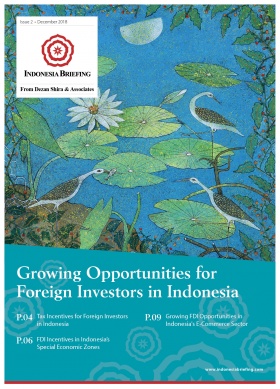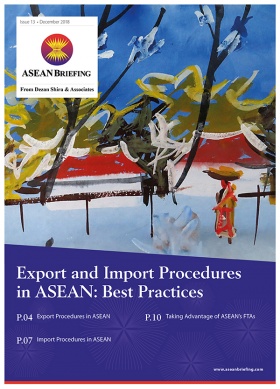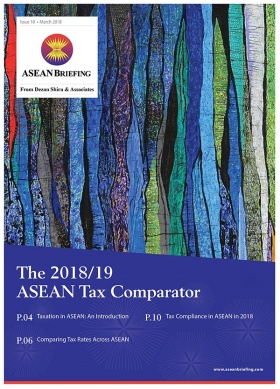Export Services in Indonesia: Eligible for Zero-Rated VAT
On March 29, 2019, Indonesia’s Ministry of Finance (MOF) issued regulation PMK-32 that expands the list of export services eligible for zero-rated value-added tax (VAT). PMK-32, which amends the previous PMK-70, 2011, aims to encourage greater development of the country’s services sector and improve the competitiveness of domestic providers in the global market.
However, businesses that are eligible need to conduct some administrative work to obtain zero-rated VAT for their exported services.
Businesses that require guidance should seek to consult their advisors to understand whether their product is eligible and what they need to do to obtain the benefit. Meanwhile, service sector businesses that haven’t invested in the country should consider whether their products are eligible.Requirements for zero-rated VAT
Under PMK-32, export services are defined as services (production of goods, facilities, or rights) produced within Indonesian territory by a taxable business or entrepreneur for the benefit of recipients outside of Indonesia.
The following types of exported services subject to zero-rated VAT:
- Toll manufacturing;
- Repair and maintenance;
- Freight forwarding services for export-orientated goods;
- Construction consulting services (which includes the development of feasibility studies, assessments, and designing of a building or master plan that is located outside of Indonesia);
- Information and technology services;
- Research and development services;
- Charter of aircraft or ships for international flights or shipping services;
- Business consultation and management;
- Legal consultation;
- Architecture and interior design consulting;
- HR consulting;
- Marketing;
- Engineering;
- Accounting or bookkeeping;
- Taxation;
- Financial audits;
- Trading services to find Indonesian suppliers for export purposes; and
- Interconnection, satellite providers and/or communication and data connectivity.
Failure to meet the above requirements will mean the service is deemed to have occurred within the territory of Indonesia and will be subject to 10 percent VAT.
PMK-32 underscores the potential for greater service sector reform
Previous Indonesian governments have been reluctant to liberalize the country’s services sector despite its increasingly influential role in the economy; it accounted for 45 percent of the GDP in 2018. Furthermore, the sector has become the largest source of job creation, constituting 45 percent of total employment in the country in 2018.
As such, the recent introduction of PMK-32 demonstrates the government’s commitment to realizing the potential of this sector. If the government continues to expand on reforms like PMK-32, it may inspire greater foreign investment into services, which would increase the competitiveness of the sector.
This could lead to increasing demand for skilled local talent, leading to more training opportunities for the working population from the informal sector – more than 50 percent of Indonesia’s workforce of 120 million is in the informal sector.
Additionally, providing greater market access to the service sector would allow the economy to take more advantage of high-quality services available in the region, in addition to providing domestic producers with opportunities for technology and knowledge transfer, boosting efficiency and production.
Another impact of liberalizing Indonesia’s services sector would be its potential to reduce the current account deficit in the face of dwindling commodity prices and stagnant growth in the country’s manufacturing sector. The country currently does not include many service components in its exports and in fact, a major source of its current account deficit is from the import of services, particularly in transportation and financial services.
The introduction of PMK-32 is one step in removing the obstacles for the advancement of Indonesia’s service sector. This will in-turn, move the sector towards the new perspective of global value chain (GVC) development, in which the service sector functions as ‘enablers’ to other sectors and economic activities.
About Us
ASEAN Briefing is produced by Dezan Shira & Associates. The firm assists foreign investors throughout Asia and maintains offices throughout ASEAN, including in Singapore, Hanoi, Ho Chi Minh City and Jakarta. Please contact us at asia@dezshira.com or visit our website at www.dezshira.com.
- Previous Article Indonesia’s New Tax Incentives: What it Means for Investors
- Next Article Tax Obligations of Non-Profit Organizations in Singapore







